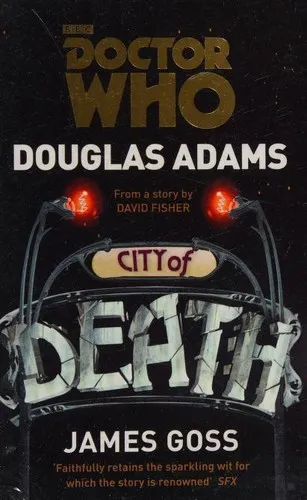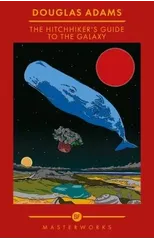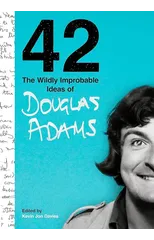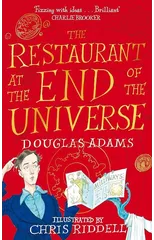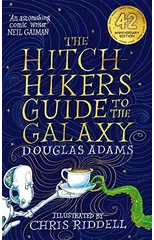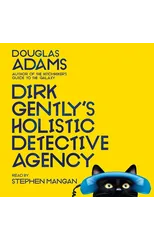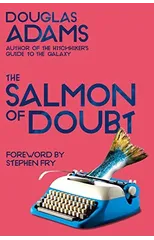Doctor Who
City of Death
(Autor) Douglas AdamsThe Doctor takes Romana for a holiday in Paris âe" a city which, like a fine wine, has a bouquet all its own. Especially if you visit during one of the vintage years. But the TARDIS takes them to 1979, a table-wine year, a year whose vintage is soured by cracks âe" not in their wine glasses but in the very fabric of time itself. Soon the Time Lords are embroiled in an audacious alien scheme which encompasses home-made time machines, the theft of the Mona Lisa, the resurrection of the much-feared Jagaroth race, and the beginning (and quite possibly the end) of all life on Earth. Aided by British private detective Duggan, whose speciality is thumping people, the Doctor and Romana must thwart the machinations of the suave, mysterious Count Scarlioni âe" all twelve of him âe" if the human race has any chance of survival. But then, the Doctorâe(tm)s holidays tend to turn out a bit like this. Featuring the Fourth Doctor as played by Tom Baker, City of Death is a novel by James Goss based on the 1979 Doctor Who story written by Douglas Adams under the pen-name David Agnew. City of Death is one of the best-loved serials in the showâe(tm)s 50-year history and was watched by over 16 million viewers when first broadcast.
Douglas Adams
Douglas Adams was a British author and humorist best known for his science fiction series "The Hitchhiker's Guide to the Galaxy." His witty and irreverent writing style, combined with his unique perspective on the universe, made him a beloved figure in the genre of comedic science fiction. Adams' work continues to inspire readers and writers alike, as he challenged the conventions of traditional science fiction and brought a fresh, humorous approach to the genre. "The Hitchhiker's Guide to the Galaxy" remains his most famous and enduring work, captivating audiences with its quirky characters, absurd situations, and philosophical musings on life, the universe, and everything. Adams' contributions to literature have left a lasting impact, solidifying his legacy as a master of blending humor and imagination in storytelling.
